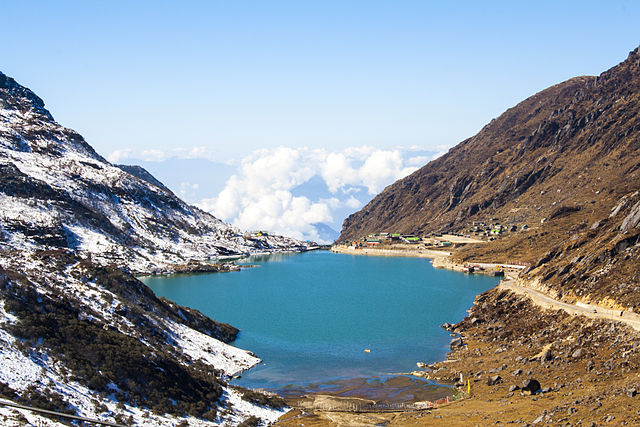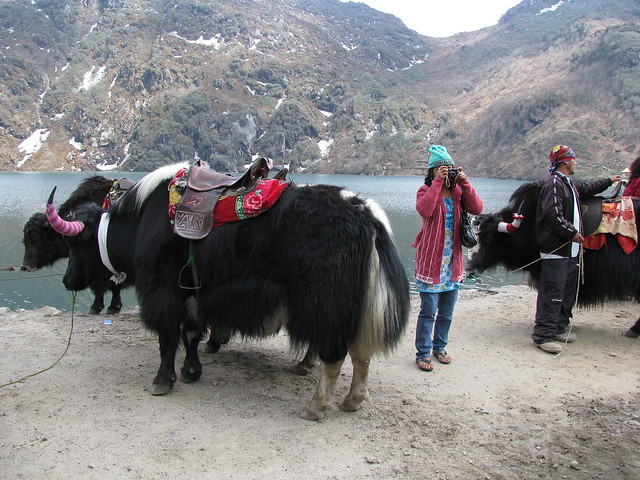The Lepchas living in villages near the massively popular tourist destination Tsomgo Lake in Sikkim were included in a news story on March 30 along with their neighbors the Bhutias and the Sherpas. The article, published on Mongabay.com, the prestigious international nature and environmental news website, described the local initiatives to protect the lake environment from the hordes of tourists who visit each year.

Also known as Changu Lake, Tsomgo is considered to be sacred by the local people. Located at 12,406 feet in the mountains about 25 miles northeast of Sikkim’s capital, Gangtok, the lake and its surrounding lands is a biodiversity hotspot that hosts Himalayan black bears, red pandas, and musk deer. It is also a stopover spot for migrating birds—and for huge numbers of tourists, whose spending contributes a lot to the local economy.
But the tourists bring their polluting ways to the lake, harming the wonders they have come to enjoy. To address the problem, the state government of Sikkim established lake conservation committees to involve local communities in protecting their natural wonders. The Tsomgo Pokhri Sanrakshan Samiti (TPSS), the Tsomgo Lake Conservation Committee, was formed by the enthusiastic local people in 2008, the first in Sikkim.

As one member from a local village was quoted by the Mongabay reporter: “Our village elders used to say that it is our duty to protect the lake and keep it clean. Else, calamity might befall the villagers… This is something every villager believes and they are fully committed to keeping the lake clean.”
TPSS acts for the communities as the custodian of the lake, keeping records of expenses incurred in protecting it from pollution and litter. Two members of each of the 180 households in the three villages around the lake serve on the TPSS, as well as other stakeholders such as representatives of the police and shopkeepers’ associations.
The organization collects Rs. 10 from each tourist, half of which goes to the state environmental agency and the rest to support local conservation initiatives. Since the people are so dependent on the large numbers of tourists, TPSS prefers to avoid fining them for littering. Instead, it simply encourages them to stop polluting. As one person told the reporter, “TPSS is doing their best but they just get trapped sometimes in the deluge of tourists.”